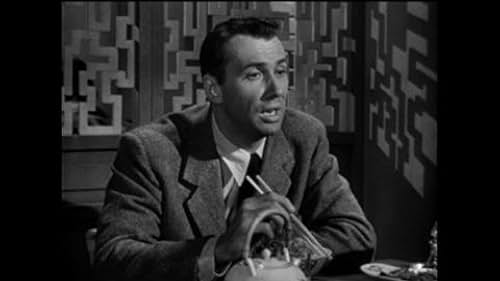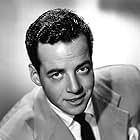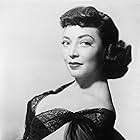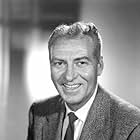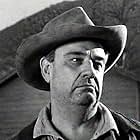IMDb RATING
7.1/10
3.9K
YOUR RATING
A sniper kills young brunettes as the police attempt to grapple with the psychology of the unknown assailant.A sniper kills young brunettes as the police attempt to grapple with the psychology of the unknown assailant.A sniper kills young brunettes as the police attempt to grapple with the psychology of the unknown assailant.
- Nominated for 1 Oscar
- 2 nominations total
Fred Aldrich
- Man at Line-Up
- (uncredited)
John H. Algate
- Man
- (uncredited)
Jessie Arnold
- Woman
- (uncredited)
Walter Bacon
- Passerby On Sidewalk
- (uncredited)
Alice Bartlett
- Woman
- (uncredited)
Harry Bechtel
- Man
- (uncredited)
Lilian Bond
- Mrs. Fitzpatrick
- (uncredited)
Gail Bonney
- Woman at Darr Murder Scene
- (uncredited)
John Bradley
- Rookie Cop
- (uncredited)
- Director
- Writers
- All cast & crew
- Production, box office & more at IMDbPro
Storyline
Did you know
- TriviaAfter making this film, Adolphe Menjou, a very vocal anti-communist, was asked why he agreed to work with director Edward Dmytryk, who had been blacklisted for his communist sympathies. Menjou replied, "Because I'm a whore".
- GoofsLate in the film, Eddie is seen crouched and aiming for a kill shot on a smokestack painter. The painter throws his pail of white paint onto the street below to get the attention of the people below who could not hear him and the pail and its contents splatter on the ground. After Eddie shoots the man and the camera returns to the street, the pavement is unmarked.
- Quotes
E.R. doctor: [talking to the duty nurse] You know how much coffee I've had today? 17 cups. The Brazilians ought to give me a medal.
- Crazy creditsA word about the picture which follows: High among police problems is that of the sex criminal, responsible last year alone for offenses which victimized 31,175 women. Adequate and understanding laws do not exist. Law enforcement is helpless. Here, in terms of one case, is the story of a man whose enemy was womankind.
- ConnectionsEdited into The Green Fog (2017)
- SoundtracksPennies from Heaven
(uncredited)
Music by Arthur Johnston
Words by Johnny Burke (1936)
Played by Marie Windsor in piano bar
Featured review
THE SNIPER reminds me of a more compact, more personal look at a psycho killer than THE NAKED CITY, which it resembles in style and content.
ARTHUR FRANZ gets his big break here, a starring role in a well-written thriller about a serial killer who wishes he could stop killing, if the police would only catch him. The final scene is a summation of that wish, but almost seems like a letdown after all the build-up to what we presume would be a bloody climax (if directed by someone like today's Martin Scorsese).
Franz's trouble is that he looks too much like any clean-cut, normal, handsome young man and his looks work against the grain of the role. He's intense when he has to be, but lacks the intenseness of a James Dean or even a Dane Clark as the man given to sudden outbursts of temper and a psyche that is screaming for help and attention. He's good, but never manages to be better than his material. Think of what someone like DANIEL CRAIG would do with this role today.
MARIE WINDSOR does a nice job as a glamorous night club pianist who has the young man (who works as an errand boy for the local cleaners) as a sort of friend she trusts. Her walk through an almost deserted looking San Francisco at night, down hilly streets on the way to her workplace, is photographed with noir precision and style, as is most of the film. Neat use of San Francisco's hilly environment is a constant point of interest throughout.
ADOLPHE MENJOU is not quite as colorful as Barry Fitzgerald was in THE NAKED CITY, playing a detective determined to catch the serial killer before he strikes again. MABEL PAIGE does a nice job as Franz's landlady who talks to her black and white cat as though it was her own dear child, and GERALD MOHR is briskly efficient as a psychiatrist who thinks the police are going about their search the wrong way.
Wonderfully photographed in B&W shadowy photography, it's a compact and efficient film noir that is perhaps a little too restrained in dealing with frank subject matter but nevertheless gets its points across with chilling clarity, thanks to a tight script and some good suspenseful footage.
Summing up: Stands on its own as a good thriller from the early '50s.
ARTHUR FRANZ gets his big break here, a starring role in a well-written thriller about a serial killer who wishes he could stop killing, if the police would only catch him. The final scene is a summation of that wish, but almost seems like a letdown after all the build-up to what we presume would be a bloody climax (if directed by someone like today's Martin Scorsese).
Franz's trouble is that he looks too much like any clean-cut, normal, handsome young man and his looks work against the grain of the role. He's intense when he has to be, but lacks the intenseness of a James Dean or even a Dane Clark as the man given to sudden outbursts of temper and a psyche that is screaming for help and attention. He's good, but never manages to be better than his material. Think of what someone like DANIEL CRAIG would do with this role today.
MARIE WINDSOR does a nice job as a glamorous night club pianist who has the young man (who works as an errand boy for the local cleaners) as a sort of friend she trusts. Her walk through an almost deserted looking San Francisco at night, down hilly streets on the way to her workplace, is photographed with noir precision and style, as is most of the film. Neat use of San Francisco's hilly environment is a constant point of interest throughout.
ADOLPHE MENJOU is not quite as colorful as Barry Fitzgerald was in THE NAKED CITY, playing a detective determined to catch the serial killer before he strikes again. MABEL PAIGE does a nice job as Franz's landlady who talks to her black and white cat as though it was her own dear child, and GERALD MOHR is briskly efficient as a psychiatrist who thinks the police are going about their search the wrong way.
Wonderfully photographed in B&W shadowy photography, it's a compact and efficient film noir that is perhaps a little too restrained in dealing with frank subject matter but nevertheless gets its points across with chilling clarity, thanks to a tight script and some good suspenseful footage.
Summing up: Stands on its own as a good thriller from the early '50s.
- How long is The Sniper?Powered by Alexa
Details
- Runtime1 hour 28 minutes
- Color
- Aspect ratio
- 1.37 : 1
Contribute to this page
Suggest an edit or add missing content


